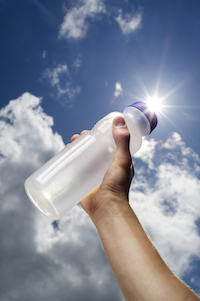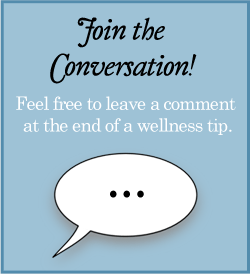 Is The Heat Getting To You?
Is The Heat Getting To You?
Summertime offers performers many enjoyable outdoor training and job opportunities. Yet there’s also the danger of becoming overheated and dehydrated when faced with seasonal risk factors, such as high temperatures and humidity, among others. Without taking precautions to stay cool, you can deplete your body of fluids and electrolytes resulting in heat exhaustion. This problem should never be taken lightly, as it may progress to heat stroke with potential damage to vital organs like the brain that can even cause death. Find out now how to recognize and treat heat exhaustion before it takes a toll on your performance and overall health.
Common Signs and Symptoms
Heat exhaustion causes bodily changes you see and feel. The signs you can see include profuse sweating, dark-colored urine from dehydration, pale skin, fainting and vomiting. Symptoms that you feel encompass confusion, dizziness, fatigue, headache, weakness, muscle cramps, nausea and a rapid heartbeat. Some of these reactions occur from water depletion, whereas others are due to a loss of sodium (a crucial electrolyte that affects the salt level in the blood). Certain health conditions and medications can also affect your ability to cope with extreme heat and humidity, so check with your doctor. Because heat exhaustion can lead to heat stroke, where your body temperature rises to 105.1 °F, it’s crucial to treat this problem immediately.
Treatment Strategies
Not surprisingly, the first step to remedy this problem is to immediately get out of the heat and rest in the nearest airconditioned room or, if that’s not an option, a cool, shady place. Drink plenty of cold fluids, while avoiding dehydrating drinks such as caffeine and alcohol. It also helps to remove tight or unnecessary clothes and immerse yourself in cool water or put cold compresses on your head, neck, torso and groin. Seek medical help if these measures fail to provide relief within 30 minutes to prevent a heat stroke.
Prevention
Pay attention to the heat index (i.e., the combination of temperature and humidity), as this affects how hot you feel. For example, if the temperature hits at least 90 degrees, with a relative humidity of 60% which interferes with your ability to sweat, you are at risk for heat exhaustion. Concrete floors that store heat, along with blistering stage lighting, worsen the problem. Wear light, loose-fitting clothes (no sweatpants) when you’re out of costume and try to avoid standing in full sunshine and eating heavy meals. Use breaks from performing to cool off in front of a fan and stay hydrated by consuming at least eight glasses of water and juices per day with one electrolyte-rich sports drink to address salt-depletion. Performers who exercise are advised to drink 24 oz. of fluids (remembering to avoid caffeine or alcohol) two hours ahead of time, and consider consuming another eight ounces of water or a sports drink right before you start. Thereafter, drink eight ounces of water every 20 minutes during exercise regardless of thirst. If you have a health condition, such as kidney disease; are on a fluid-restricted diet; or have a problem with fluid retention, do not increase fluid intake before discussing this with your healthcare professional.
Conclusion
You may be extremely sensitive to elevated temperatures for a week after recovering from heat exhaustion, so avoid extreme weather and exertion until you get the green light from your doctor. Sunny weather can be tolerable, if not downright enjoyable, as long as you take adequate precautions. Meanwhile, don’t forget to use your sunscreen.








